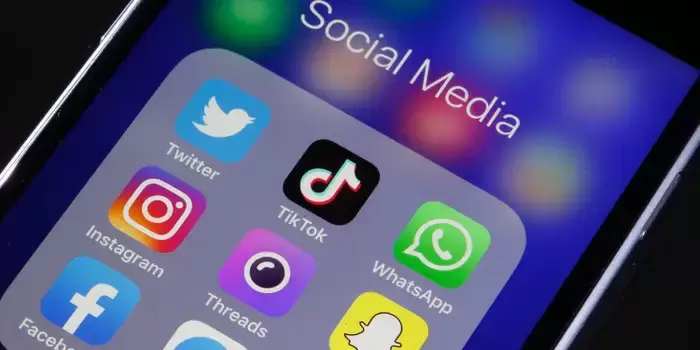"A new bill restricting kids and teenagers from having social media in Utah should take effect in 2024. This bill is causing some mixed opinions about this decision."-- Naomi West, 6th Grade
A new bill restricting kids and teenagers from having social media in Utah should take effect in 2024. This bill is causing some mixed opinions about this decision. In this bill, “it’s stated that children must have explicit parental permission to have social media apps like TikTok, Instagram, etc.” according to Natasha Singer, a reporter at The New York Times.
Most parents are thrilled about this while teenagers are very frustrated with the extent of the restrictions. Host of New York Times The Daily, Micheal Barbaro, in an interview with Singer, said, “It's not a secret that parents have been craving for a way to limit their kids' access to these kinds of platforms.” Along with parental permission, all social media will lock at 10 p.m. and unlock at 7 a.m. to keep teenagers from staying up on their phones unless parents turn the setting off. These restrictions wouldn’t make any teenager happy but aren't very damaging.
What’s really upsetting teenagers is that parents have access to all of their child's social media from their own phones including posts, outgoing messages, incoming messages and pictures. This could change the relationship between parents and children and the trust between them. Children should be able to confide in people who aren't their parents if they don't feel comfortable talking to their parents, and this bill will be taking that away. Barbaro believes, “It’s like a law mandating that parents should have access to their kids’ diaries.”
The primary reason given for this law is the mental health effects of social media. Many parents are concerned that social media increases the risk of depression, anxiety, insomnia, and cyberbullying. States like Minnesota, Ohio, Texas, Connecticut, and New Jersey are “following Utah’s lead,” according to NBC News. Singer believes that the Utah bill is very prohibitive and that the approach should instead be, “A kind of safety and privacy-by-design approach in which lawmakers elsewhere are saying to the major tech platforms, you need to change the design of your systems from the ground up to consider the risks to children at every stage.”
There are places taking the ideal approach like the United Kingdom, which enacted protections for kids in 2021. They made safety restrictions on all platforms for everyone under 18 with things like all automatically-posting videos being made private. The UK approach puts the responsibility on the companies to make the designs and the features age-appropriate for different ages of young people.
Teenagers should have restrictions on social media, but it isn’t fair for it to go as far as it has, especially for older teenagers. Utah, and states following its choices block everything before making it a problem for the social media apps to fix. Places like the UK understand that issues with screen time and mental health aren't just the child's fault but is the company’s responsibility to fix.


